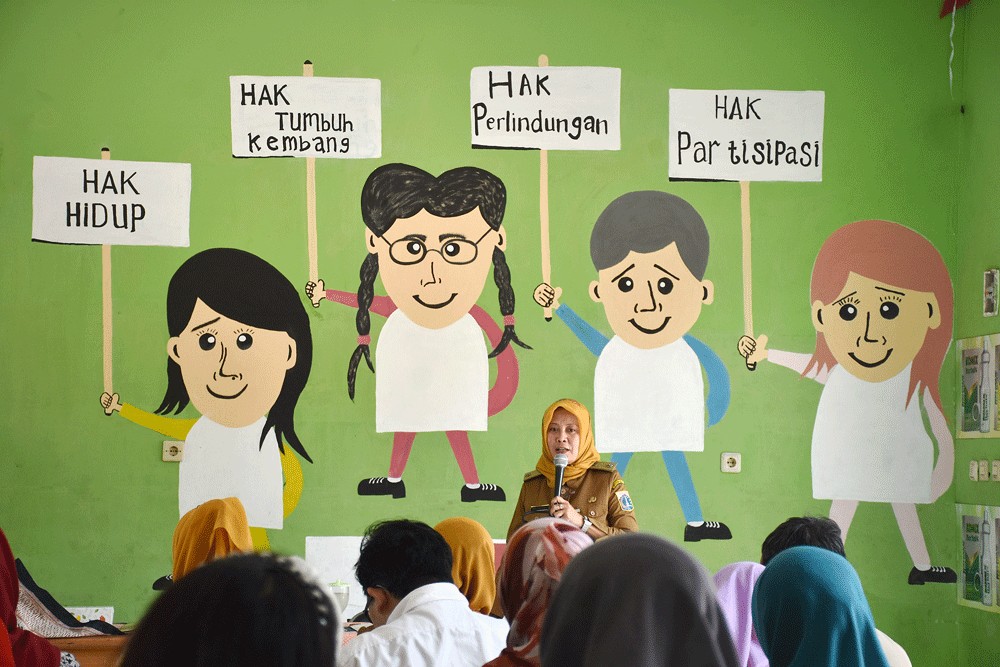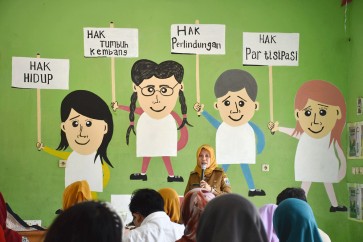Popular Reads
Top Results
Can't find what you're looking for?
View all search resultsPopular Reads
Top Results
Can't find what you're looking for?
View all search resultsSchooling and sex education can help reduce high child marriage rates
Child marriage is a key cause of teenage pregnancy, with its concomitant higher risks of pregnancy and birth complications, including giving birth to premature or underweight babies.
Change text size
Gift Premium Articles
to Anyone
W
hen we commemorate the International Day of Families on May 15, we should remember that despite the decline in child marriage rate globally, our country's progress in tackling the issue remains slow. Many children still trade their optimum period to grow and thrive for the responsibilities of parenthood.
UNICEF ranks Indonesia eighth-highest globally and second in Southeast Asia in terms of the number of child marriages. The latest National Socioeconomic Survey (Susenas) found that 11.21 percent of girls age 20-24 wed before 18, which equals 1.2 million child brides. Within the same population, over 60,000 girls marry before 15. On the other hand, one in every 100 boys marries before 18.
Child marriage determinants include lack of education, poverty, gender inequality and cultural and religious norms. A study held in Bone, South Sulawesi, one of the provinces with the highest rate of child marriage in Indonesia, discovered that teenagers who drop out of school are more likely to marry younger.
Impoverishment, and limited exposure to accurate and reliable knowledge about the harmful impacts of child marriage, are some reasons that parents arrange marriages for their young children to reduce the family's economic burden. Another major factor is parents' desire to prevent shame due to extramarital sex and unwanted pregnancy.
Children who marry before 18 have a four-time lower chance of continuing their studies after high school, further increasing their isolation from peers. The foremost root cause of school dropouts is marriage, followed by doing household chores. Stigma, forced exclusion from school, working and not having enough financial means to complete their study also cause them to stop schooling.
Furthermore, child marriage carries catastrophic physical and mental health consequences. Child marriage is a key cause of teenage pregnancy, with its concomitant higher risks of pregnancy and birth complications, including giving birth to premature or underweight babies. Compared to their adult counterparts, young brides are more likely to deal with sleep deprivation, low self-esteem and depression.
Living as a child bride is also burdensome economically. Work interruption because of childbirth and domestic chores, being less educated and less skilled hinders children from securing decent-paying jobs. Their hard-earned money often needs to be allocated to their children, their parents or their relatives, further perpetuating the poverty cycle.



















